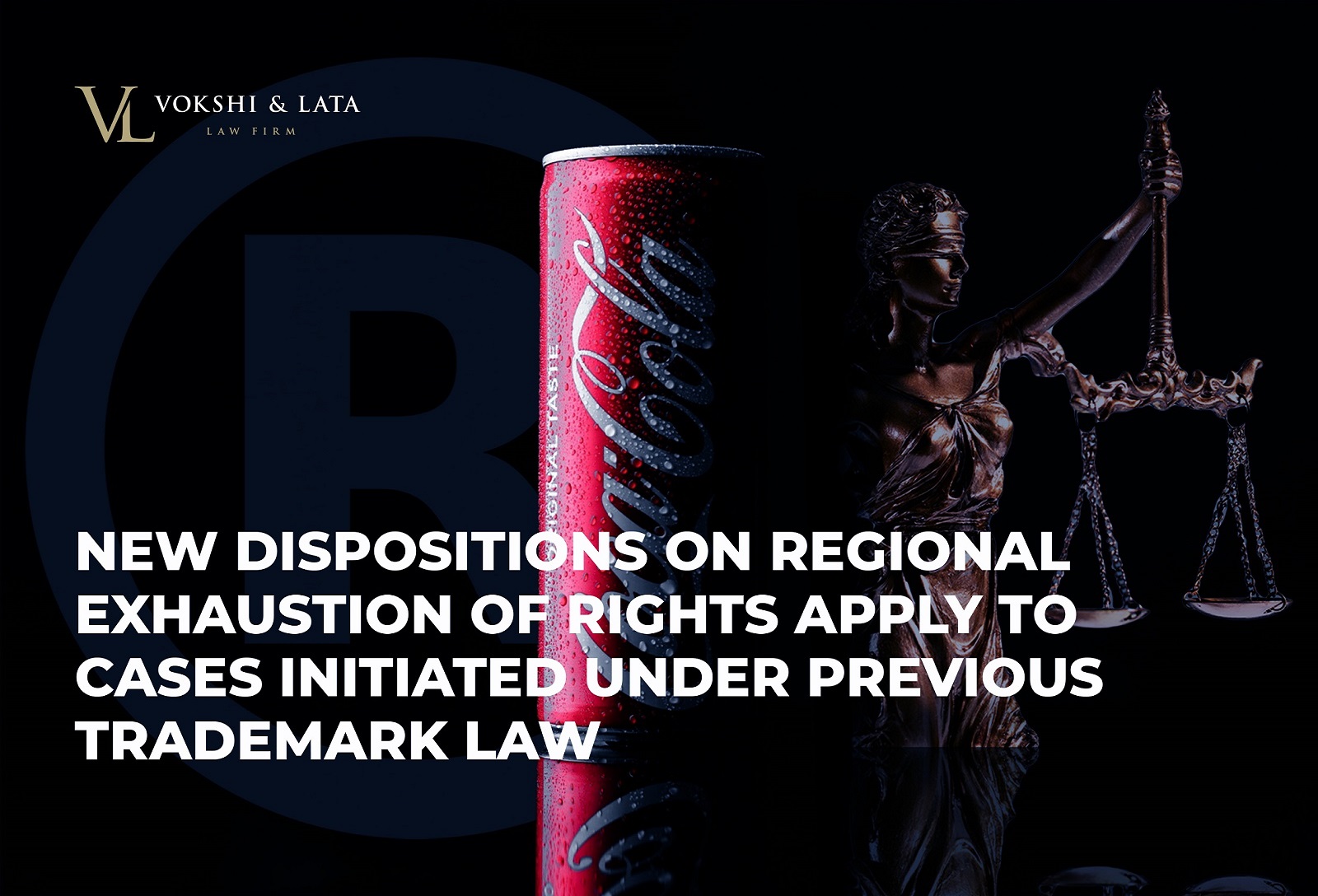New dispositions on regional exhaustion of rights apply to cases initiated under previous Trademark Law

Authors: Florin Lata and Ted Ginsburger
Exhaustion principle
Pursuant to the principle of exhaustion, a trademark owner cannot prohibit the further distribution of a product placed by itself on a geographically defined market. The principle of exhaustion of rights can apply internationally, regionally or nationally, depending on the country’s regulations. Kosovo’s new Law No 08/L-075 on Trademarks, in force since 28 July 2022, extended the delimitation of this principle from the national to the regional level, leaving some uncertainties regarding the application of the new principle to cases introduced under the previous law.
The Coca-Cola case
On 24 March 2022 The Coca-Cola Company led a lawsuit for trademark infringement requesting a temporary measure enjoining the defendant to stop importing, exporting and placing on the Kosovo market products bearing its trademarks registered in Kosovo. According to the plaintiff, the release of a product in the relevant market can be done only by the trademark holder or its authorised representative, or with its consent.
In previous cases, The Coca-Cola Company had been able to obtain such provisional prohibition in front of the Kosovo courts. However, applying the new regional exhaustion principle, the Kosovo Commercial Court rejected the plaintiff’s request for provisional measures at first instance on 18 October 2022, and confirmed this decision at second instance on 21 February 2023.
According to Article 14(1) of the new Trademark Law, a trademark owner may not prohibit the importation of products bearing its trademark after it has placed them on the following markets:
- the Republic of Kosovo;
- the European Union;
- the European Economic Area;
- the Western Balkans region;
- a state with which the Republic of Kosovo has a free trade agreement or trade facilities.
This constitutes a major change as the previous trademark law provided only for the national exhaustion of rights, meaning that exhaustion could apply only to products introduced on the Kosovo market by the holder of the trademark rights.
Interpreting Article 14 as a regional application of the exhaustion principle, the First-Instance Chamber considered that the plaintiff had lost its right to ban the use of its trademarks in Kosovo because it had itself placed the products on the market of the Republic of Albania. Therefore, the plaintiff’s request was considered to be without legal basis and was rejected.
The Second-Instance Chamber confirmed the conclusion and legal position of the First-Instance Chamber, but seemed to base its rejection of the request on the fact that the plaintiff had failed to prove that the absence of provisional measure would make the main claim difficult to realise.
Comment
It will be necessary to wait for the decision in the main proceedings to obtain a more comprehensive interpretation of the new principle of regional exhaustion of rights.
The decision of the Commercial Court however provides for a first application of the principle of regional exhaustion to a request introduced under the previous law. It also shows how this new principle may prevent trademark owners from obtaining temporary measures against the importation of their goods in Kosovo, which they may have been able to obtain under the previous legislation.
Another question is how the Kosovo courts will interpret Article 14(2), which excludes exhaustion for altered or damaged goods. For goods coming from outside the regional exhaustion area, a misinterpretation may lead to the conclusion that a trademark owner cannot oppose the importation of such goods if it is not proven that they were previously altered or damaged. Such interpretation would have major consequences in the market.
This article first appeared in WTR Daily, part of World Trademark Review, in May 2023. For further information, please go to www.worldtrademarkreview.com.
